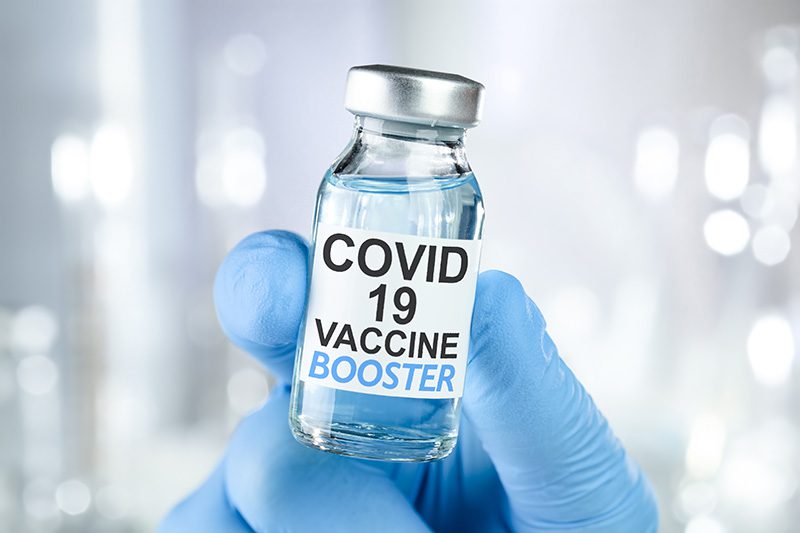We started giving COVID booster shots on January 11. We’ve been fortunate to have additional pharmacists to help with the vaccinations, allowing us to stay on schedule and keep up with the usual dispensary activities.
Many people have had questions about the need for a booster shot, timing after their initial series, and whether it’s okay to get a different booster than what they received for their original series of vaccinations. These are great questions!
Is a booster dose worthwhile?
Let’s start with a little background information.
The Omicron variant of COVID-19 has a lot of mutations around the spike protein that is the target of current vaccines. These mutations can change how well the vaccines work against it, as well as transmissibility and severity of illness if you do get COVID. So far, we know that it is significantly more transmissible than previous variants, even amongst vaccinated individuals. That’s because it replicates so efficiently in the bronchi (the tubes that go from the windpipe to the lungs), making it easily airborne. We also know that it can take as little as 3 days from exposure to symptoms. But there is good news! Omicron doesn’t seem to cause as much lung damage — and the proportion of people with severe symptoms causing hospitalization or death is much lower. On the flip side, there are so many more people affected that the total number of people in hospital is still increasing. This puts a huge strain on the health system.
Natural immunity gained from a previous infection is less predictable than from vaccines, and evidence so far shows that rates of re-infection are higher with the Omicron variant. Omicron is better at standing up to the vaccines, but 2 doses will still help to keep you out of hospital. The vaccines are not failing because they can’t keep everyone from getting COVID. Rather, they are succeeding at preventing severe symptoms and possible death. A booster dose will broaden the antibody response against variants, so it is still wise to get a booster dose to reduce the risk of getting COVID and transmitting it to others.
Is it okay to get the Moderna vaccine if we had Pfizer, Astra-Zeneca or Johnson & Johnson before?
If you are over 30 years of age, the National Advisory Committee on Immunization (NACI) recommendation is that either of the mRNA vaccines is appropriate. There is no preference for Pfizer or Moderna. Both mRNA vaccines carry some risk of myocarditis/pericarditis (inflammation of the heart muscle). The risk is low overall: 3.0 per 100,000 for Moderna and 1.9 per 100,000 for Pfizer. There is a higher risk after the 2nd dose for males age 18 to 29: 15.9 per 100,000 for Moderna versus 2.6 per 100,000 for Pfizer. For these individuals, Pfizer is preferred. Individuals 12+ years of age should also get Pfizer, unless they are severely immunocompromised, in which case Moderna is preferred. In fact, Moderna is preferred for immunocompromised adults, too. Clear as mud, right? There is currently a shortage of Pfizer in British Columbia, so it is being reserved for those who really need it. As we only have Moderna in the pharmacy, we will ask individuals who need Pfizer to re-book with Public Health (currently at the Florence Filberg Centre).
How do I book an appointment at the pharmacy?
You can book a booster shot appointment once you receive your invite, which should be 6 months after your 2nd dose. Book your appointment with us in the same way you have booked previous COVID vaccine appointments: by clicking on the hyperlink in the email or text message you receive from Public Health, going online to gov.bc.ca/getvaccinated, or by phoning the COVID call centre at 1-833-838-2323. Look for Medicine Shoppe #414 as your preferred site. As long as we have appointments available, you will see us in the drop-down list of site options.
We open up new clinic times at the end of each day based on the stock of vaccine that we have available. This ensures that we don’t run out or overbook. Our supply is variable, as not everyone receives a booster (1/2 dose). Some people are getting their 1st or 2nd dose, and individuals who are over age 70 or are seriously immunocompromised will need a full dose.
